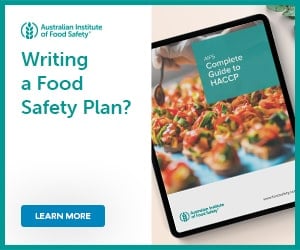
Consumer confidence throughout Australia has suffered a serious hit recently as customers question the safety of imported foods after imported berries caused 26 suspected instances of hepatitis A.
But the crisis isn't limited to berries. Approximately 200 other imported foods destined for supermarket shelves in the last six months have been found to have contained contaminating substances capable of provoking cholera, miscarriages and other damage. What makes the news worse is that 83 of those items were already up for sale before anyone realised they had failed the food safety tests.
Food that is classified as "low-risk" automatically becomes released for sale before the results of important safety tests are discovered. This means that the 83 products, including prawns filled with banned antibiotics, cheese peppered with E.coli and vegetables steeped in illegal insecticides, rang no warning bells on the way to shelves. Of the many food safety problems that have been revealed, fourteen cases of listeria have been noticed, which presents a huge threat to the elderly and pregnant women. Despite this, tougher food tests are not being implemented.
Fishy Business Practices
A batch of imported John Bull Tuna products was recently recalled after four individuals contracted symptoms of scombroid food poisoning at a Sydney Café. Food safety professionals from the NSW Food Authority suggested that the poisoning instance likely resulted from mishandling issues or temperature control problems in Thailand - where the fish originates - and the café insist that they meet the highest standards of hygiene. The news comes as an unfortunate follow-up to the scombroid poisoning-related deaths of Noelene Bischoff and her daughter Yvana last year.
Cut Backs on Imported Food Tests
As the tests for imported foods seem to have fallen short of consumer expectations over the recent years, many consumers are starting to feel more concerned about which foods are safe to eat from their local supermarkets. Statistics from the Department of Agriculture state that the number of microbiological tests conducted on imported foods is at their lowest numbers since 2009-10.
According to department results, 1.7% of every 200 foods tested contain higher-than-permitted levels of listeria, salmonella, E. coli, or bacillus. As a result, worried Australian shoppers have turned to farmers markets in an attempt to find meals they can trust. It seems that Australia certainly places higher standards of testing on the food produced by local farmers than it does on the food that it brings in from other countries.
Perhaps this is an indication that more attention needs to be given to imported food safety checks, or perhaps it suggests that Australians are really better off staying local when it comes to produce.




